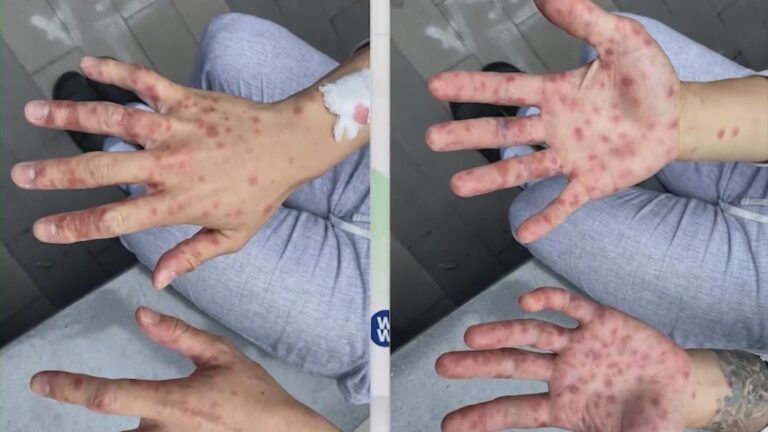Surge in Monkeypox Cases Triggers San Antonio Health Alert
San Antonio health authorities have confirmed an increase in monkeypox infections, with the current count reaching five confirmed cases. This rise has prompted an immediate and coordinated response from the city’s public health department, which is intensifying efforts to educate the community on recognizing symptoms and preventing transmission. Residents are encouraged to be vigilant for signs such as fever, rash, and swollen lymph nodes, and to promptly consult healthcare providers if exposure is suspected.
To empower the public with effective prevention techniques, the health department has rolled out targeted messaging emphasizing:
- Limiting close physical contact with individuals showing symptoms or known to be infected
- Maintaining rigorous hand hygiene through frequent washing with soap and water
- Monitoring recent travel to areas experiencing monkeypox outbreaks
| Symptom | Typical Onset Period | Recommended Response |
|---|---|---|
| Fever | 1 to 5 days after exposure | Seek medical evaluation |
| Rash Development | 1 to 3 days following fever | Avoid contact with others |
| Enlarged Lymph Nodes | Concurrent with rash appearance | Monitor and report symptoms |
San Antonio Launches Multifaceted Education Initiative
In light of the growing monkeypox cases, San Antonio officials have implemented a comprehensive public awareness campaign designed to inform residents about the virus’s transmission, symptoms, and available treatments. This initiative leverages various platforms, including community seminars, distribution of educational pamphlets, and a dedicated helpline to assist those seeking information. Health experts stress that early identification and adherence to preventive practices are crucial to halting the virus’s spread.
Highlights of the education campaign include:
- Interactive community events in busy public spaces
- Partnerships with local clinics to facilitate routine testing
- Live online sessions featuring infectious disease experts
- Provision of educational resources in multiple languages
| Initiative | Intended Audience | Anticipated Impact |
|---|---|---|
| Community Seminars | General Population | Enhanced Public Knowledge |
| Healthcare Partnerships | High-Risk Groups | Timely Diagnosis and Care |
| Informational Pamphlets | City Residents | Broad Awareness |
| Helpline Support | Symptomatic Individuals | Immediate Assistance |
Recommended Preventive Practices for Community Health
Public health officials strongly advise residents to adopt proactive measures to reduce monkeypox transmission. Key recommendations include thorough and frequent handwashing with soap, avoiding close interactions with anyone exhibiting symptoms, and wearing face coverings in crowded indoor environments. Additionally, individuals should avoid sharing personal belongings such as towels, bedding, and clothing to minimize infection risk.
Recognizing symptoms early and seeking prompt medical care remain vital components of community safety. The table below summarizes essential preventive actions and their effectiveness:
| Preventive Measure | Effectiveness Level |
|---|---|
| Consistent Hand Hygiene | Very High |
| Mask Usage in Crowded Settings | Moderate to High |
| Not Sharing Personal Items | Very High |
| Self-Isolation When Symptomatic | Essential |
Guidance for Healthcare Professionals on Monkeypox Management
Healthcare providers in San Antonio have received updated protocols to enhance detection and treatment of monkeypox amid the recent case surge. The guidance highlights the importance of identifying hallmark symptoms such as fever, swollen lymph nodes, and characteristic skin lesions predominantly on the face and limbs. Medical staff are instructed to implement stringent infection control practices, including the use of appropriate personal protective equipment (PPE), and to report suspected cases swiftly to public health authorities to facilitate rapid containment.
To streamline clinical response, the health department has circulated a concise checklist outlining critical steps for patient assessment and management:
- Symptom Evaluation: Comprehensive patient history and physical exam focusing on rash development
- Specimen Collection: Proper technique for lesion swabbing to confirm diagnosis via laboratory testing
- Isolation Protocols: Procedures to reduce exposure risk within healthcare settings
- Vaccination Guidelines: Criteria for administering post-exposure prophylaxis
| Protocol Stage | Primary Action | Recommended Timing |
|---|---|---|
| Initial Assessment | Identify symptoms and exposure history | Upon patient arrival |
| Sample Collection | Obtain lesion swabs for PCR testing | Within 24 hours of suspicion |
| Patient Isolation | Apply contact and droplet precautions | Immediately after suspicion |
| Vaccination Administration | Provide post-exposure vaccine | Within 4 days post-exposure |
Looking Ahead: San Antonio’s Ongoing Monkeypox Response
As the situation evolves, San Antonio health officials remain vigilant, continuously monitoring new developments and case trends. Public education remains a cornerstone of the city’s strategy to combat monkeypox, with ongoing efforts to keep residents informed about prevention and symptom recognition. Authorities strongly advise anyone who suspects exposure or experiences symptoms to seek medical evaluation without delay. Further updates will be shared as additional information becomes available.




